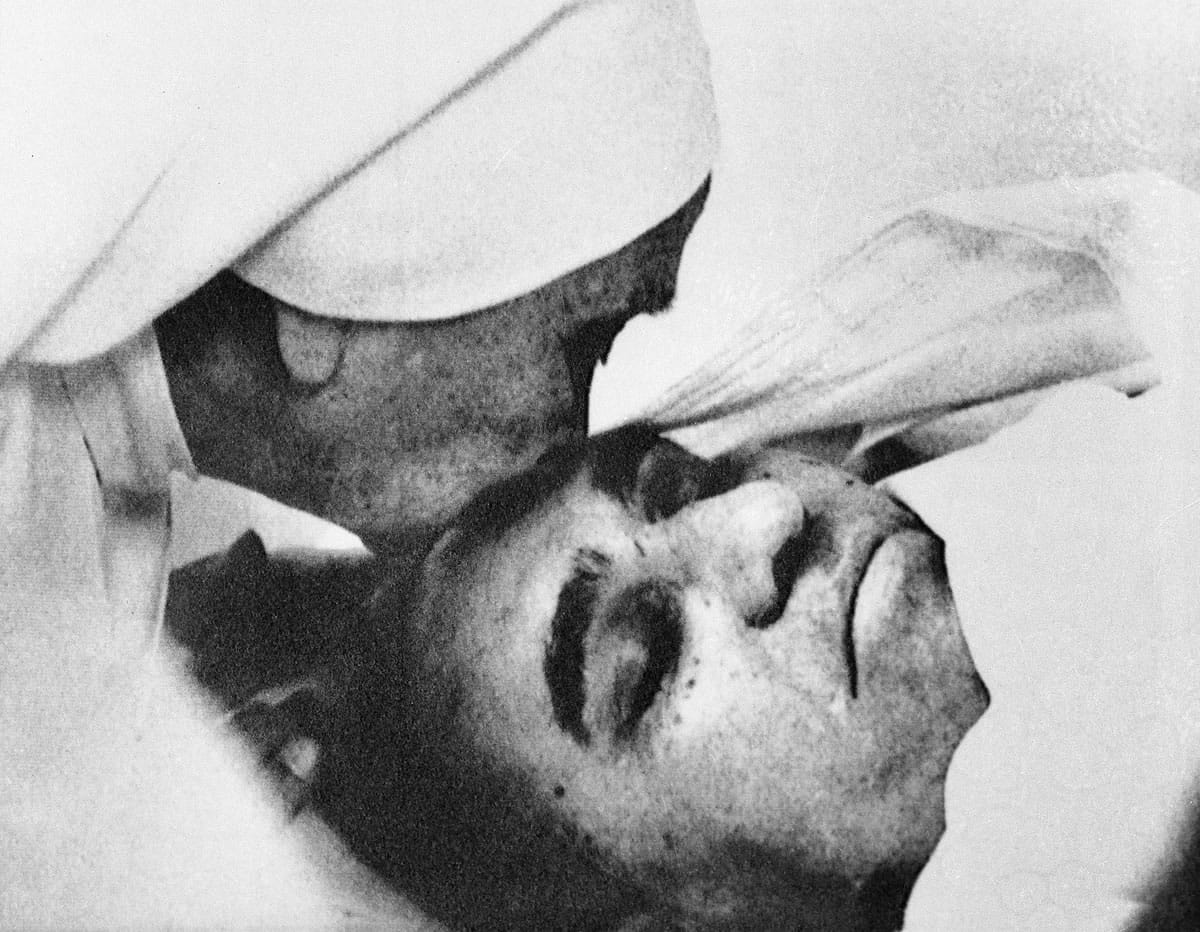SAN SALVADOR, El Salvador — When Archbishop Oscar Romero was shot to death as he said Mass, Danlio Macias’ family mourned as if one of their own relatives had been killed.
“I see these photos,” Macias said, eyes red with tears as he visited the site of Romero’s murder, now a small museum, “and all the trauma comes back.”
Romero was slain 35 years ago next month in a hospital chapel here in the capital of El Salvador by a sniper acting on the orders of right-wing forces that — with U.S. backing — would wage war against leftist guerrillas for more than a decade.
Pope Francis this week took the most significant step yet toward proclaiming Romero a saint. On Tuesday, he recognized the late archbishop of San Salvador, 62 at the time of his death, as a martyr, killed because of “hatred” of his Roman Catholic faith.
It had been a matter of dispute among more conservative factions of the church. Many of Romero’s foes argued he was killed for his politics, not his religion. In fact, Romero only slowly came to oppose the government, siding strongly with the poor and pronouncing shortly before he was killed that soldiers who were slaughtering civilians should not obey orders that go against their God.
Pope Benedict XVI, a month before his resignation, removed the main hurdle that was blocking Romero’s cause by saying his candidacy should be considered. Enthusiastic support then came with the ascension in March 2013 of Francis, an Argentine and the first pope from the Americas.
El Salvador on Wednesday was welcoming the news that Romero’s beatification — the step before sainthood — was now only a matter of time. The Vatican will, somewhat unusually, hold the beatification ceremony in San Salvador. A date has not yet been set but it is likely to take place in the coming months.
“It is an overwhelming joy,” Gregorio Rosa Chavez, auxiliary bishop of San Salvador and a disciple of Romero’s, said after Mass at the city’s Resurrection Church.
“A lot of us said, ‘We’re never going to see this happen,’ ” he added, noting the opposition to Romero’s sainthood from right-wing critics, many whom ruled El Salvador until recently — and many who have since died. “Well today, we’re seeing it happen.”
For many in El Salvador, and throughout Latin America, the Vatican’s action is but a formality. Romero is already regarded as saintly by his followers.
Count Omar Albanez, 50, is among them. He too was visiting the Divine Providence Hospital, where Romero lived his final years and where he was killed.
“For all the good things he did, for his allegiance to reality,” Romero is already a saint, Albanez said, accompanied by his two children and wife, whom he wanted to learn about the slain bishop. “You can’t deny he did a lot of good. … He paid attention to everyone, and if someone came to him for help, he tried to help them.”
Like hundreds of thousands of other Salvadorans, most of Albanez’s family fled to the United States during the civil war, which finally ended in 1992 after claiming 75,000 lives in a tiny nation of 5 million people. It was the murder of Romero that many consider a turning point.
On Wednesday at the Vatican, Archbishop Vincenzo Paglia, the postulator, or sponsor, of Romero’s case, also seemed to delight in a hard-fought battle finally won.
“It is an extraordinary gift for all of the church at the beginning of this millennium to see rise to the altar a pastor who gave his life for his people,” Paglia said in a news conference.
“It is not without significance that his beatification will take place precisely when there is for the first time in history a Latin American pope who wants a ‘poor church, for the poor.’ It is a providential coincidence,” Paglia, who is also president of the Pontifical Council for the Family, added.
Under the rules of the Catholic Church, for a person to be beatified, a miracle must be attributed to his or her intervention. A second miracle is necessary for the next step, sainthood. However, if a person is declared a martyr, the first miracle is foregone and the person can be beatified. A miracle is still necessary for the final elevation to sainthood.




